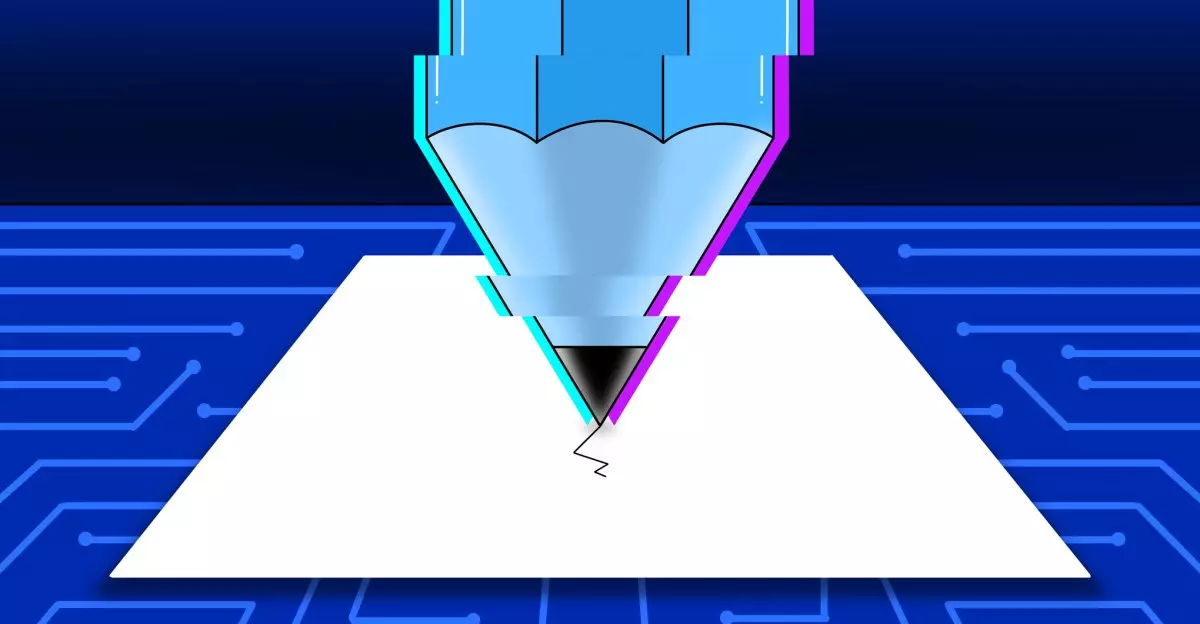The contemporary landscape of artificial intelligence is intensely competitive, with the United States and China vying for dominance. OpenAI’s bold assertion that gaining access to copyrighted materials is crucial to outpace China underlines much more than just a struggle for technological supremacy; it reflects the national security implications tied to innovation in AI. As industry giants like OpenAI and Google urge the U.S. government to reconsider its stance on copyright limitations, we must scrutinize the broader context of this issue. Is the quest for unimpeded access to data merely about enhancing AI capabilities, or does it carry a deeper, more concerning undertone?
The Plea for Fair Use
In its recent proposals, OpenAI articulated a need for fair use protections that would enable AI developers to leverage copyrighted content for training models. This argument posits that without such permissions, American companies face an uphill battle against their Chinese counterparts who may freely access similar resources. The notion of equating AI advancement with national security is particularly provocative, drawing attention to what many see as a titanic struggle, not just for technological superiority, but also for geopolitical standing. While it is understandable that OpenAI seeks to protect its industry, the implications of normalizing the disregard for copyrights merit grave consideration.
Google’s alignment with OpenAI’s stance lends credence to the urgency of the request, but it also opens the floodgates for a troubling precedent. By promoting a narrative that copyright regulations are a barrier to innovation, these companies may inadvertently weaken the foundational principles that protect creators and their intellectual property. The balance between progress and protection is delicate and must be approached with clear-eyed caution rather than mere expediency.
Challenges and Controversies
The conversation around AI training and copyright has been fraught with controversy. Numerous AI enterprises are under scrutiny for alleged copyright infringement as they scrape data to build their models. For instance, OpenAI is currently facing multiple lawsuits from entities like The New York Times, compounding concerns over legality and ethics in AI development. The implications of these lawsuits are significant; they hint at a potential reckoning that could reshape how companies approach data sourcing in the fight to refine AI systems.
Furthermore, accusations against other high-profile companies, such as Apple and Nvidia, for utilizing YouTube subtitles without proper authorization exacerbate the situation. A troubling pattern emerges in which major corporations exploit loopholes to train AI models without adequately compensating original content creators, raising vital questions about the ethical underpinnings of the technology industry’s approach to copyright.
National Security vs. Creator Rights
The intersection of national security claims and copyright rights hinges on a fundamental dilemma: at what cost does innovation come? OpenAI’s warning about falling behind China reflects a sense of urgency, but it should not serve as an excuse to undermine the rights of those whose work is being leveraged. The potential for AI to accelerate progress in various sectors is significant, yet fostering advancement should not lead to a free-for-all in terms of intellectual property.
Anthropic’s divergent approach in its submission, which emphasized evaluating the national security risks associated with AI models rather than undiscriminating access to copyrighted works, opens a crucial dialogue. It signals that there might be alternative pathways to enhance America’s AI infrastructure that don’t involve jeopardizing creators’ rights. Striking a balance between caution and commitment to responsible advancement is paramount.
Implications for the Future
As the proposals from AI leaders like OpenAI and Google unfold, the consequences for America’s position in the global AI arena are profound. The push for more lenient regulations on copyrighted material could critically alter the landscape of content creation. It risks a situation where the manipulation of creative works by corporations supersedes the rights of individuals. If left unchecked, the quest for technological advancement carried out under the banner of national security could lead to a commodification of creativity, undermining the very artists and innovators that drive cultural and intellectual progress.
As we look toward the future, it is imperative that the dialogue surrounding AI development encompasses not just the technological stakes but also the ethical dimensions. Balancing the needs for innovation and the protection of creators is not just beneficial—it’s essential for a sustainable and equitable technological ecosystem. The path forward requires earnest negotiation, clear policymaking, and a steadfast commitment to uphold the value of creativity amidst a whirlwind of rapid technological evolution.

